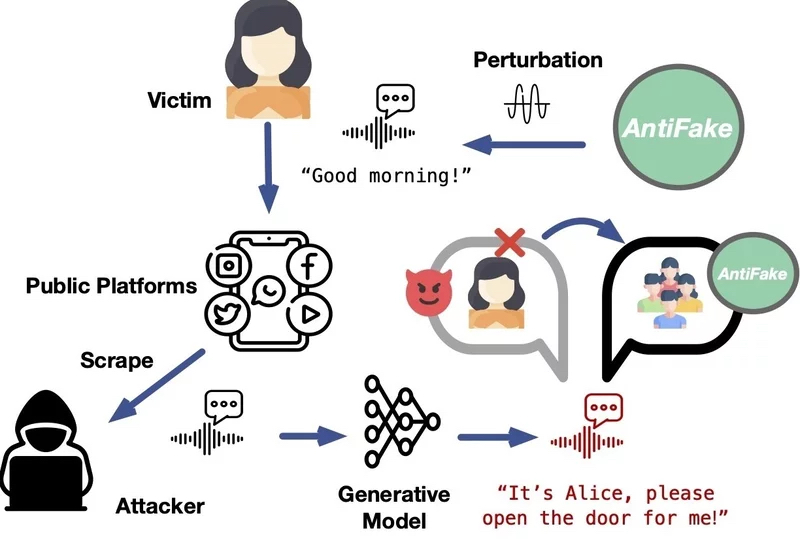We reach more than 65,000 registered users in Dec!! Register Now

Defending your voice against deepfakes
- January 03, 2024
- 3 Views
- 0 Likes
- 0 Comment
McKelvey engineers prevent synthesis of deceptive speech by making it more difficult for AI tools to read voice recordings
Recent advances in generative artificial intelligence have spurred developments in realistic speech synthesis. While this technology has the potential to improve lives through personalized voice assistants and accessibility-enhancing communication tools, it also has led to the emergence of deepfakes, in which synthesized speech can be misused to deceive humans and machines for nefarious purposes.
Unlike traditional deepfake detection methods, which are used to evaluate and uncover synthetic audio as a post-attack mitigation tool, AntiFake takes a proactive stance. It employs adversarial techniques to prevent the synthesis of deceptive speech by making it more difficult for AI tools to read necessary characteristics from voice recordings. The code is freely available to users.
“AntiFake makes sure that when we put voice data out there, it’s hard for criminals to use that information to synthesize our voices and impersonate us,” Zhang said. “The tool uses a technique of adversarial AI that was originally part of the cybercriminals’ toolbox, but now we’re using it to defend against them. We mess up the recorded audio signal just a little bit, distort or perturb it just enough that it still sounds right to human listeners, but it’s completely different to AI.”
Currently, AntiFake can protect short clips of speech, taking aim at the most common type of voice impersonation. But, Zhang said, there’s nothing to stop this tool from being expanded to protect longer recordings, or even music, in the ongoing fight against disinformation.
“Eventually, we want to be able to fully protect voice recordings,” Zhang said. “While I don’t know what will be next in AI voice tech — new tools and features are being developed all the time — I do think our strategy of turning adversaries’ techniques against them will continue to be effective. AI remains vulnerable to adversarial perturbations, even if the engineering specifics may need to shift to maintain this as a winning strategy.”
List of Referenes
- Zhiyuan Yu, Shixuan Zhai, Ning Zhang. AntiFake: Using Adversarial Audio to Prevent Unauthorized Speech Synthesis. Proceedings of the 2023 ACM SIGSAC Conference on Computer and Communications Security, 2023 DOI: 10.1145/3576915.3623209
Cite This Article as
No tags found for this post









